News feed
We can delegate tasks to AI but not responsibilities
2025. 07. 17.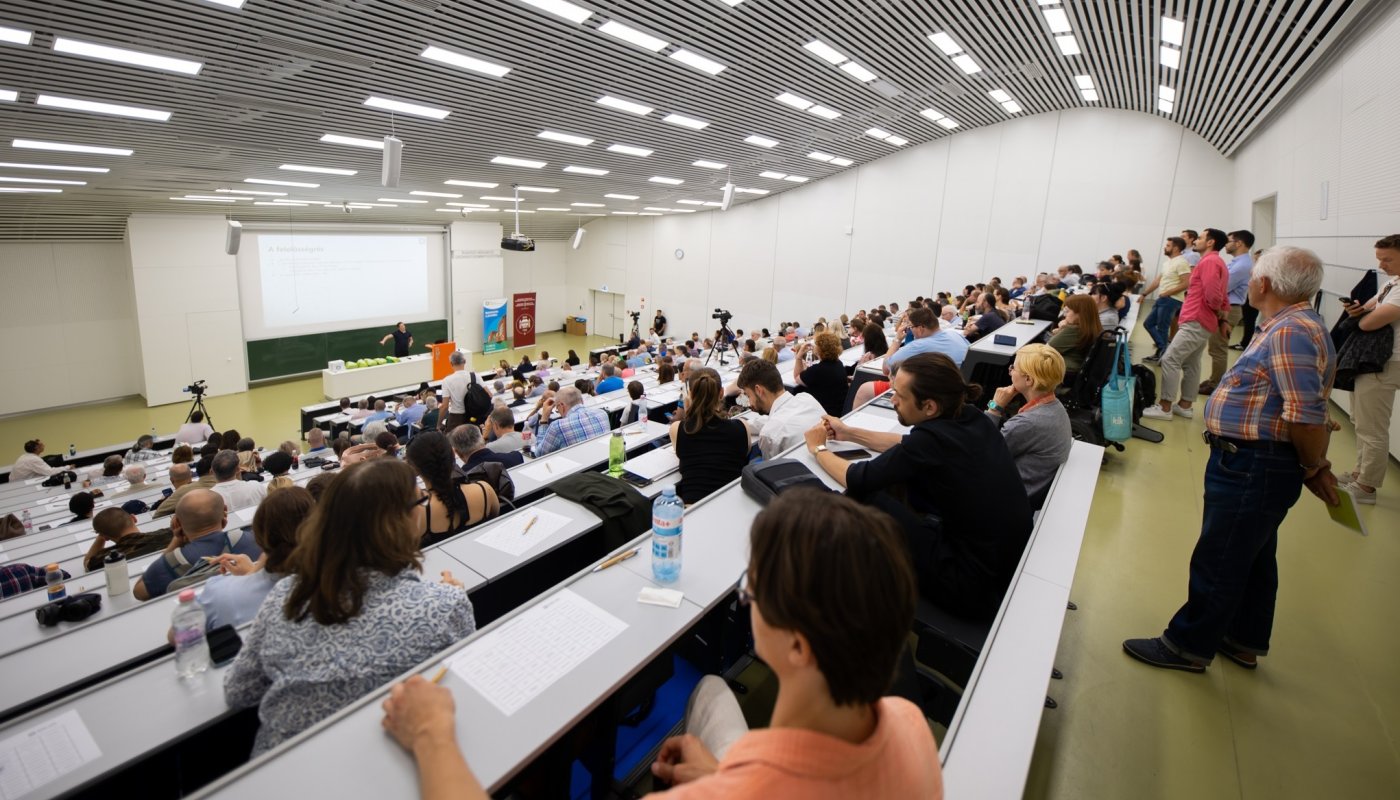
The first season of BME's Future Planner lecture series ended with the GTK event.
“We try to link these occasions to topics that define all of our lives. Both the social and the economic impacts of artificial intelligence are immeasurable, and the competencies of BME fully cover this area. Engineering knowledge alone is insufficient here, it must be complemented by something else, and the GTK also has the expertise to do this, ” said János Levendovszky, Vice Rector for Research and Innovation at BME, at the beginning of the GTK awareness-raising event.
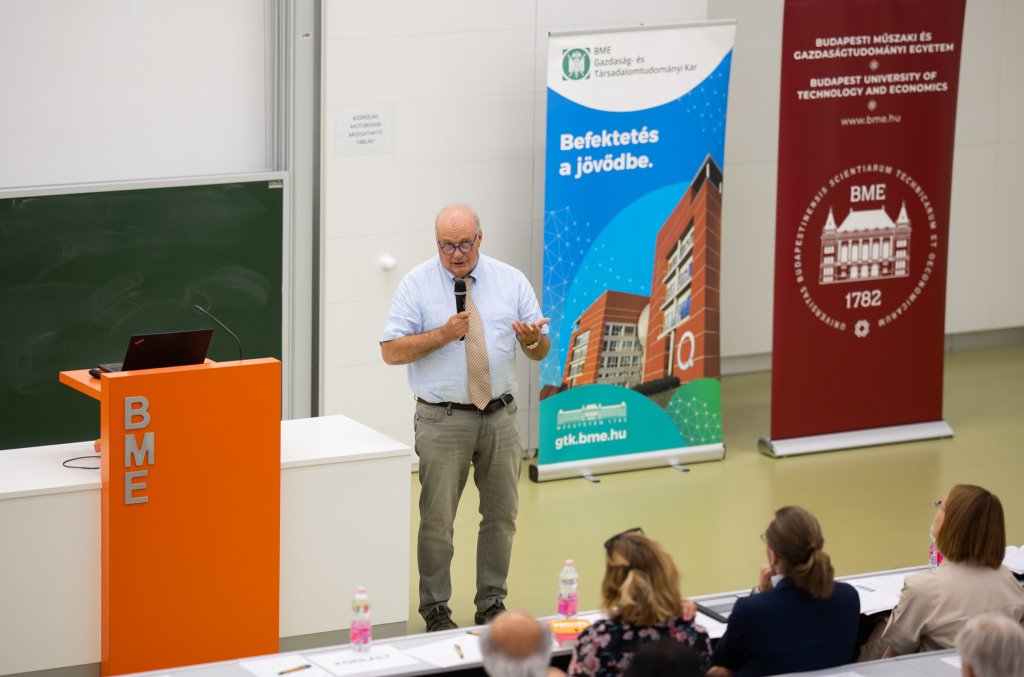
After the introductory speech by Dean Tamás Koltai, Vice Dean for Education Emma Lógó, who played the role of the moderator, introduced Mihály Héder, head of the Department of Philosophy and History of Science, who gave a lecture titled Artificial Intelligence vs Human Identity. Mr. Héder started by saying that the challenge of education at the BME is to equip students with knowledge that will last through their entire lives, while technology is rapidly becoming obsolete. However, systems approach, problem solving and quality work are part of the BME identity. Since such an identity-forming characteristic is relatively constant and connects to the community, the only question is whether AI can challenge this.
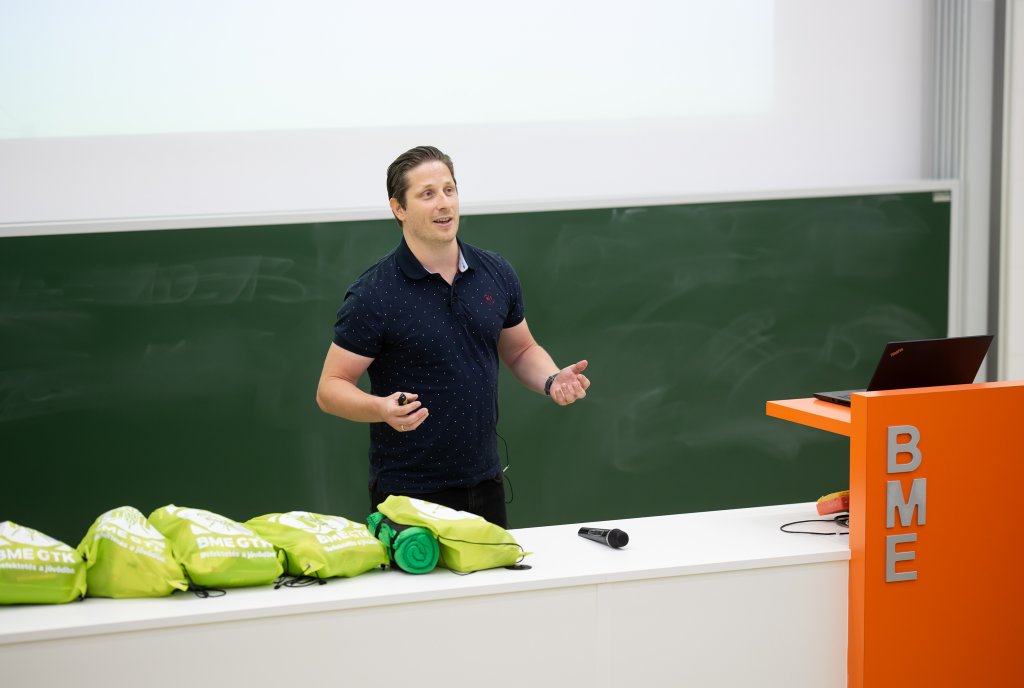
Mihály Héder stressed the importance of the so-called responsibility gap: we can delegate tasks to AI but not responsibilities. Therefore, in most areas the solution is human supervision. We also need to redefine professional know-how, to increase the resolution of professions by outsourcing the first, general component. “A similar strategy can work in other areas of life,” he noted.
Anikó Grad-Gyenge, Head of the Department of Business Law, talked about the relationship between the music industry and AI in her lecture titled Whatis AI music actually? With its $27 billion in revenue, the music industry is one of the largest in the world. Music is one of the most important identity-forming tools, and copyright law is a 300-year-old institution. In contrast, streaming service providers already register about 10-20 thousand new pieces of AI-created music uploaded every day.
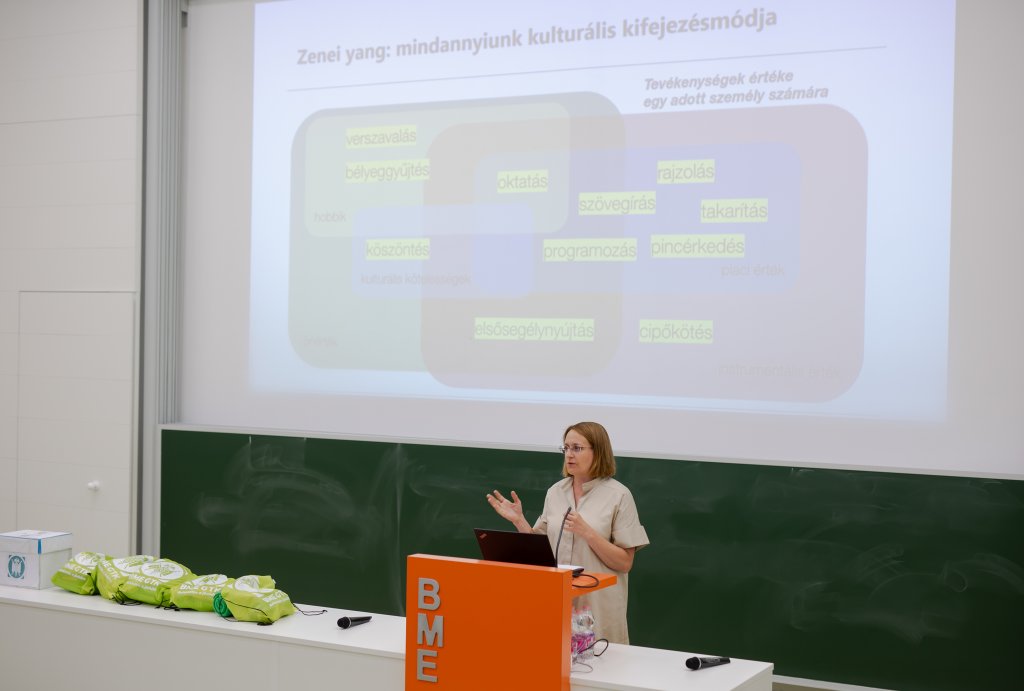
The Head of the Department illustrated the current composer knowledge of algorithms with short song excerpts, and the audience could vote on which one was created by humans, which by AI, and which were joint efforts. It seems that we already do not have a good enough feel about what human creativity is and is not, and it is predicted that AI-generated music will soon be the majority in service providers’ offerings, resulting in creative creators potentially losing $4 billion a year.
“It is a big problem if you have to pay royalties for something that has no creative work behind it,”
Anikó Grad-Gyenge said.
Gábor Hamp, Associate Professor of the Department of Sociology and Communication, gave a lecture on a similar topic titled Prompt Literacy: iteration and creative thinking – prompting image generation tools. He argued that creativity should appear here in the prompts we give to AI, and this can of course be taught. “Let's teach depth and amazement,” said Gábor Hamp.
However, the revolution in artificial intelligence is not only technological, but also relational and psychological. Beatrix Séllei, Associate Professor of the Department of Ergonomics and Psychology, talked about the tendency of more and more people using AI as a replacement for psychologists. We also like asking questions from AI because it is as if we could connect with AI, which then satisfies our social needs. AI is undoubtedly very good at two things: availability (“it is always there to help”) and unconditional acceptance.
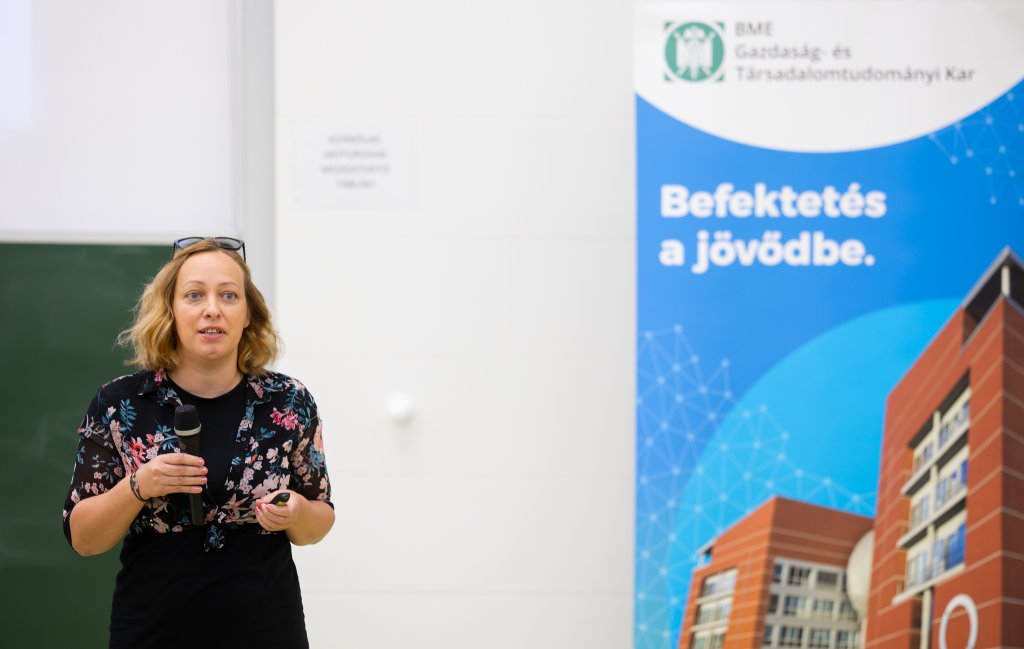
“All this seems to be a good entry point into the realm of self-knowledge, but the fraud can be seen in the fact that AI actually only gives back what we put into it, as there is no critical overture in it,” explained Beatrix Séllei.
“Emotional intelligence is, therefore, clearly a human extra,”
she added.
Next, Péter Szandi-Varga, Assistant Professor of the Department of Technical Education, simply asked the following question about artificial intelligence: Will AI save or destroy us? Namely, AI is often seen as a potential fertilizer of currently stumbling sustainability efforts and also as a factor that fulfils negative scenarios with its own polluting operation.
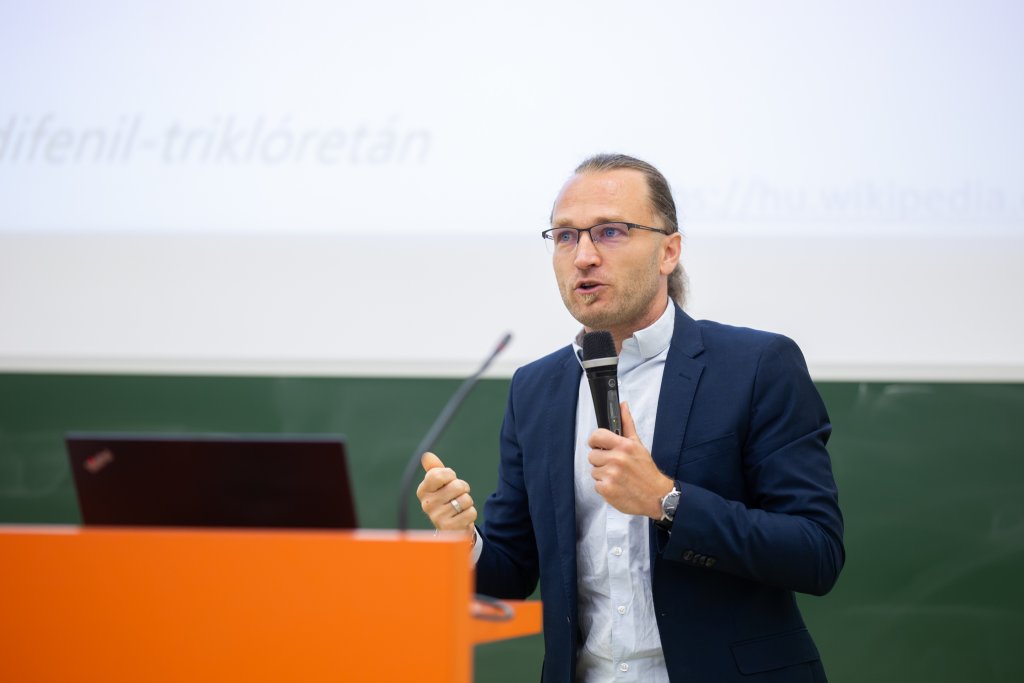
In any case, growth models outline several scenarios, but at the same time, the expectations placed on the individual regarding environmental awareness are likely to be exaggerated. “And AI can help individuals make better decisions in everyday situations”, Péter Szandi-Varga pointed out.
Rector's Office, Department of Communications
